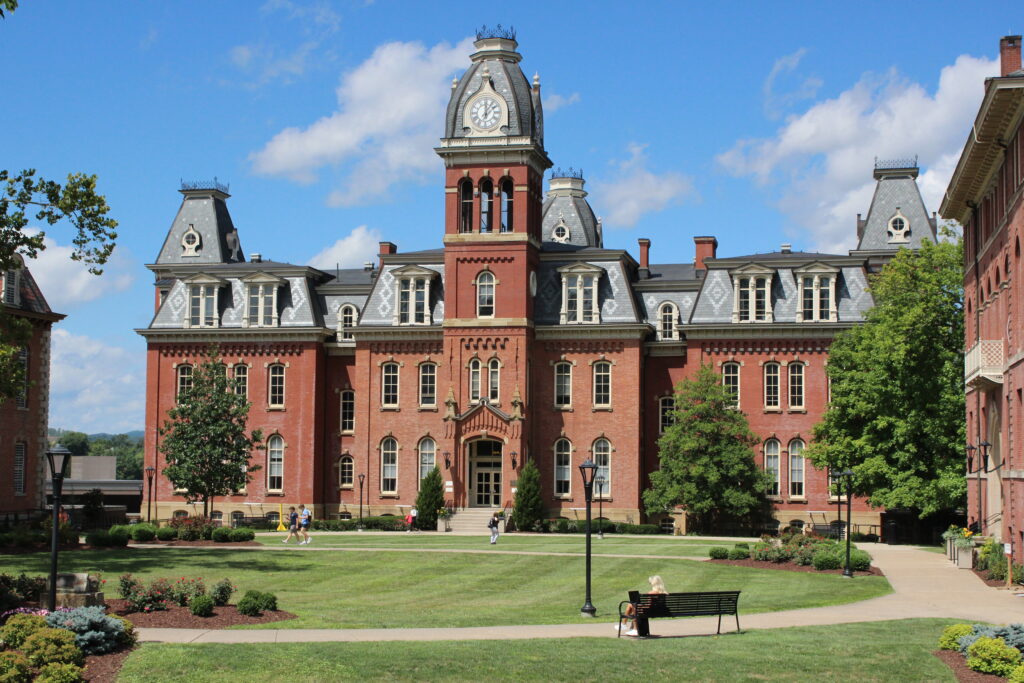Dozens of West Virginia University (WVU) community members spoke out against proposed cuts to university programming ahead of a vote Friday.
For more than three hours Thursday, faculty, students, alumni and community members pleaded with the WVU Board of Governors to reject or freeze proposed cuts to university programs. Speakers were each limited to two minutes.
First to speak was Student Body President Madison Santmyer, who read a student assembly opinion and an assembly resolution, both in opposition to the cuts.
“The new budget model used to make these decisions was not adequately explained by administrators,” she read. “Communication by the university on academic transformation, especially regarding final decisions on the future of academic programs, has failed to meet students where they are, and has been muddled in administrative jargon.”
Brian Woerner, a professor in the Department of Computer Science and Electrical Engineering, urged the board to carefully consider the implications of the cuts before their vote.
“Graduates from these majors have driven the growth of the software industry in Morgantown, Fairmont and Clarksburg over the last few decades,” he said. “I fear that significant cuts will limit economic development opportunities for the state and surrounding region for years to come.”
Masters student Zachary Gilpin warned of the unintended consequences of cuts beyond their intended programs. He said multiple programs will be impacted that are not listed for termination, or for loss and faculty.
“These programs depend on education and programs for World Languages in order to advance research that you are offering as an example of success in one area,” Gilpin said. “You have to consider that there are downstream impacts. Isolating any given program as one individual particle or one atom to analyze doesn’t make any sense in the complex ecosystem of a university.”
Gilpin also questioned the qualifications of administrators to suggest such cuts.
“I implore you to consider that while your administrators may have expertise when it comes to gutting worker’s comp in West Virginia, perhaps they’re not the best whenever it comes to recommending how to reform education at the level of WVU,” he said.
Gilpin was not alone in criticizing the administrators who have proposed the cuts.
“We’re also very well aware that the administration’s salaries have increased by $50 million since 2013,” said undergraduate Miles Case. “You’ve already done significant damage to our university. And so now it’s your duty and your obligation to fix it.”
He then turned his attention on President Gordon Gee, who received a lopsided vote of no confidence from the faculty last week.
“You were correct when you said that higher education is under attack, but I think you forgot to mention that you were the one who was attacking it,” Case said.
Many took the time to discuss the impact the university had on their lives, and how the proposed cuts would have limited their opportunities.
First generation college student Olivia Dowler said a college education wasn’t expected of her.
“Please don’t make me have to say that I’m embarrassed to go here,” she said. “Please don’t make me feel guilty whenever I tell students that they should come here. I love this state and the school. And so to all these people, that’s why we’re here today.”
Not one person spoke in favor of the proposed cuts.
The board will meet again Friday at 9 a.m. to vote.




















